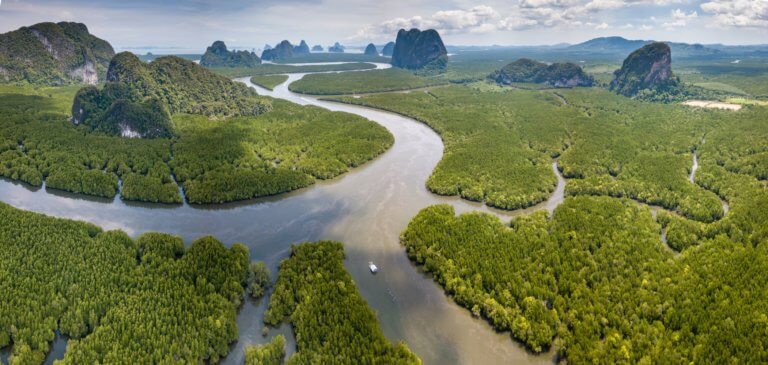SIRC 2021: Nature-based solutions offer long-term returns
November 17 2021 by Raymond Barrett
Carbon projects designed to protect forests across the Asia Pacific region have the potential to generate financial returns of up to US$25 billion per year for the next 30 years, according to Koh Lian Pin, a professor of conservation science at the National University of Singapore.
Speaking today during a panel session at the 2021 Singapore International Reinsurance Conference (SIRC) titled “Putting nature at the heart of decision making”, Koh said that Indonesia alone could generate US$10 billion per year for those willing to invest in this space.
“Nature-based solutions are integral to achieving [our climate goals],” he said.
This point was echoed by Veronica Scotti, Swiss Re’s chairperson of public sector solutions, who noted that currently we don’t fully recognise the value of nature in our economic systems.
In terms of translating this concept to putting an actual price on these externalities, Scotti said the first step is to treat nature as an asset.
“This can be quite profitable,” she said.
In particular, Scotti highlighted a project in Mexico where Swiss Re provided insurance cover for a stretch of coral reef off the country’s Yucatan Peninsula.
Climate change
Akanksha Khatri, the World Economic Forum’s head of nature and biodiversity, added that natural capital and biodiversity must be included in global climate change policy in order to reach 2030 global warming goals.
However, Khatri noted that not all carbon credits of offsets are created equal and added that we also need to be able to measure other ecosystem services such as water purification and soil health management.
In terms of opportunities and challenges in Asia, Koh said that South-East Asia’s island nations in particular have a huge potential in the area of “blue carbon” ecosystems such as mangrove forests, seaweed and algae.
However, the existing market-based mechanisms may not be enough because of pricing problems that currently exist around carbon offsets. In addition, it is important to prevent greenwashing by large corporations and both the buyers and sellers of carbon credits must be held to account, Koh said.
-
QBE | Elevating customer experience, humanising claims: QBE Asia’s ‘Solutions in a Box’
Vastly improving turnaround times and personalising service delivery, QBE Asia’s award-winning, end-to-end bundled claims solutions is a game-changer for the insurance industry.
-
Beazley | What does cyber protection look like from day 1 to day 600 and beyond?
Cybersecurity is no longer just an IT concern, but a governance issue that belongs on the boardroom agenda.
-
Sedgwick | Preparing for the next storm
Insurance industry needs to recalibrate, invest in innovation and strengthen systems, talent and data practices.
-
Peak Re | From climate modelling to market opportunity: Forging a new clarity on Southeast Asia’s climate risk
Southeast Asia's protection gap: a crisis of clarity, not just capital

